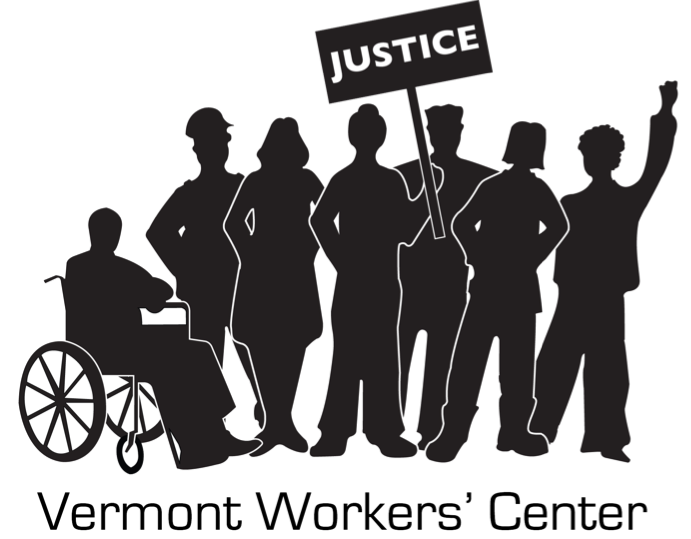Op-Ed in Burlington Free Press, February 2002
By Tenaya Lafore, Vermont Workers Center Steering Committee Member
In his Jan. 22 budget speech, Gov. Howard Dean proposed major cuts to health care and other essential public programs. In doing so, the governor threatened to rob Vermonters of basic services, but claimed to make these recommendations for their sake.
In attempting to justify his slash-and-burn approach, he said that, “While we are sympathetic to the plight of those who will receive fewer state services, we must also do our best to help people who have lost their jobs get through these tough times.” Dean implies that one group of vulnerable Vermonters — those why rely on state assistance — must pay for the economic security of another, laid-off workers.
He gives the false impression that Vermonters who utilize public services have no choice but to fight each other for their piece of a shrinking pie. Worse, it leads one to think that cuts will somehow help unemployed workers who are struggling to support their families. Finally, he directs attention away from the real and growing division in Vermont between the few who are profiting off the economy and the majority who are not.
The perception that budget cuts will only impact a small number of Vermonters is just not true. Whether they be Vermonters who rely on some form of state assistance, have been recently laid off or have school-aged kids, “those who will receive fewer state services” are just about everyone.
The most publicized cuts impact health care and education. But dozens of other already under-funded programs are being reduced, including public transportation, employment and training, child care, housing and community mental health. Extreme short-staffing levels, layoffs and possible wage cuts in many agencies mean compromised quality of services. They also threaten the safety and livelihood of thousands of public and publicly-funded workers.
Vermonters’ property taxes will likely rise to pay the cost of services the state no longer supports, and of course this cost will be passed down to renters as well. All of this means Vermonters are being asked to pay for a budget “crisis” that could have been avoided and can be solved in other ways.
While legislators argue over which services to cut, the truth is that there is plenty of money to fund all needed programs. Two examples: By instituting a more progressive tax structure, like the “Snelling” tax of 1990 which taxed the wealthy at higher rates, the state itself has estimated that $130 million would be raised in 2002. In addition, by taxing stock market profits and other capital gains at the same rate as wages — wages are currently taxed at a higher rate — more than $25 million more would be available.
Because most new sources of revenue won’t be available until next year, the state can and should use the Rainy Day Fund now. Only half of this fund is needed to reverse all cuts for this year. As recently reported, many other states are turning to the Rainy Day Fund to make it through the recession (Burlington Free Press, Feb. 5).
Do proposals like the ones described above place an unfair burden on the rich? Consider that for the past decade, the wealthy have benefited from tax cuts and preferential treatment for stocks and other unearned income while regular Vermonters have seen their real wages go down. For example, when the tax rate was decreased from 25 percent to 24 percent of the federal rate in 1999, the top 9 percent of Vermont households received over half of the $15 million in lost state revenue. This budget “crisis” didn’t just happen — the state spent the past decade giving away its surplus instead of planning for harder times. To balance the budget on the backs of families already suffering from the current recession, when the state has the option of using the Rainy Day Fund and raising revenue through fairer taxation, is inexcusable. Vermonters have the right to expect better leadership than that. There is no question that reversing the cuts and fully funding public programs is both feasible and necessary. The only question is whether or not legislators will choose to protect the economic security of all Vermonters.
